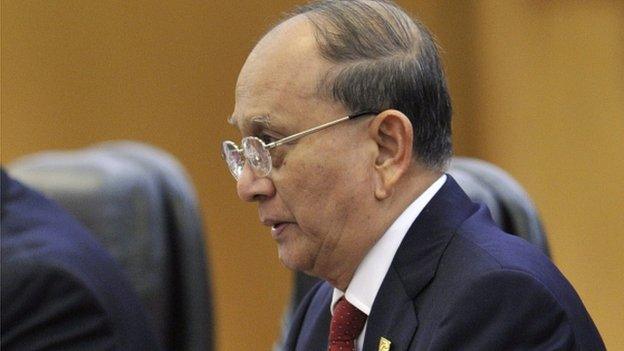Myanmar reforms: Obama 'confident' of political change
- Published
President Obama: ''I am optimistic about the possibilities of Myanmar''
US President Barack Obama has said he is "optimistic" about the political transition process in Myanmar during a visit to the country - but added that "change is hard".
His comments came after a night-time meeting with President Thein Sein.
Mr Obama had earlier met Burmese lawmakers, including opposition leader Aung San Suu Kyi.
In an interview published on Wednesday, he had accused the government of backsliding on reforms.
The US president is in the capital Nay Pyi Taw for the East Asia summit.
Following the hour-long meeting with President Sein, he said that "the democratic process in Myanmar is real".
"We recognise change is hard and you do not always move in a straight line but I'm optimistic," he added.
President Thein Sein, a former general, said the talks had been candid, according to the Associated Press news agency.
In 2010, Myanmar held elections which replaced military rule with the military-backed civilian government of Thein Sein.
Since then, many political prisoners have been released, media restrictions have eased and Ms Suu Kyi has been released from years of house arrest.
Amid the reforms, her National League for Democracy rejoined the political process and secured a small block of seats in parliament after a landslide win in by-elections in 2012.
But Ms Suu Kyi - who is currently banned by a constitutional clause from becoming the nation's president - has recently warned that reforms have stalled, as all eyes turn to 2015 when the next general election will be held.
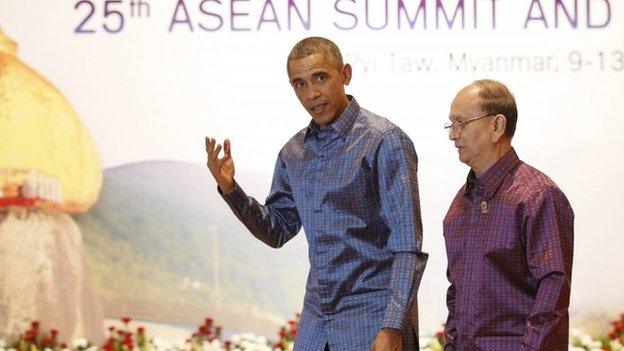
Then Sein's (R) government replaced military with civilian rule - but reforms have since slowed, say critics
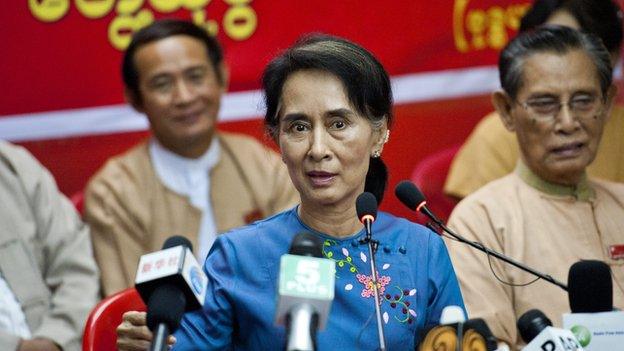
Aung San Suu Kyi spent years under house arrest under military rule
Discussing his earlier meeting with Burmese parliamentarians, Mr Obama said they had talked about Myanmar's transition from military rule to democracy.
Among the issues discussed were the protection of minority rights and how majority and opposition parties could work together, he said.
"The work is not yet done, and the goal of the United States here is to be a strong partner in the process.
"But our consistent aim and goal will be to see that this transition is completed so that it delivers concrete benefits for the people."
Mr Obama was due to meet Ms Suu Kyi again in Yangon on Friday.

Analysis: Jonah Fisher, BBC News, Yangon
So did the reformers run out of steam? Did Thein Sein's project reach a roadblock manned by hardliners in the Burmese army? Or perhaps we're close to the final destination - that is, with sanctions lifted and the army still really in charge.
Ms Suu Kyi's main frustration is that the constitution remains unchanged.
Drafted in 2008, it entrenches the military's control of political life, guaranteeing it a quarter of the seats in the Hluttaw (the Burmese parliament), and a veto over any changes to the constitution.
This is what its architects proudly call a "disciplined democracy".

In an interview with a Thai-based Burmese website ahead of his arrival, Mr Obama said reform momentum had slowed in Myanmar and that there had even been some steps backwards.
He cited restrictions on political prisoners, the arrest of journalists and the ongoing plight of the Rohingya Muslim minority displaced in Rakhine state after anti-Muslim violence.
"Even as there has been some progress on the political and economic fronts, in other areas there has been a slowdown and backsliding in reforms," he said.
This is Mr Obama's second visit to Myanmar. He last came in November 2012, in what was the first visit to the nation by a US president.
Mr Obama's meeting with Thein Sein took place on the sidelines of the East Asia summit - which groups the Asean bloc with the US, China, India, Japan, South Korea, Australia, Russia and New Zealand.
On Wednesday Asean (the Association of South East Asian Nations) held its own meeting in the Burmese capital.
- Published12 November 2014
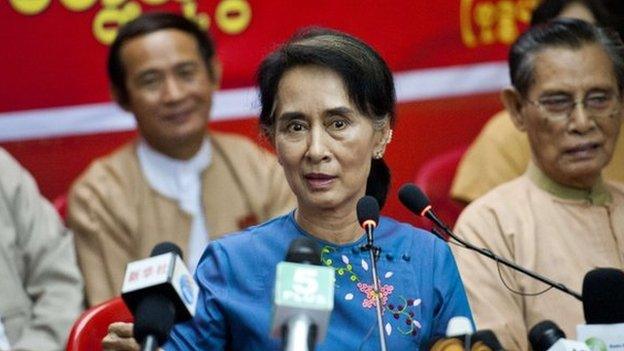
- Published8 July 2015
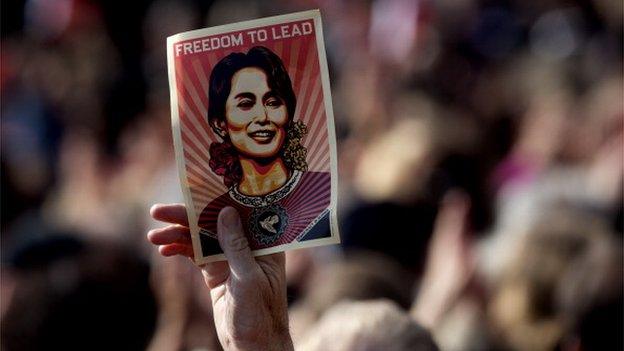
- Published13 November 2014
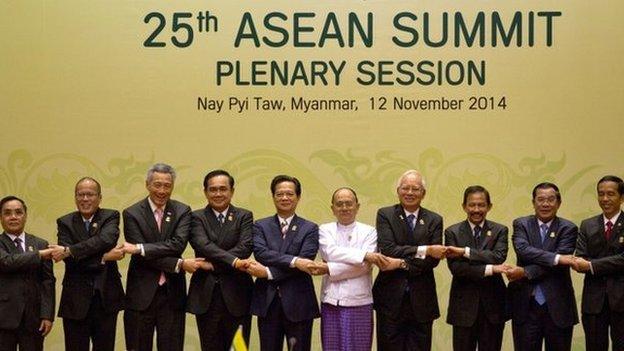
- Published26 May 2023
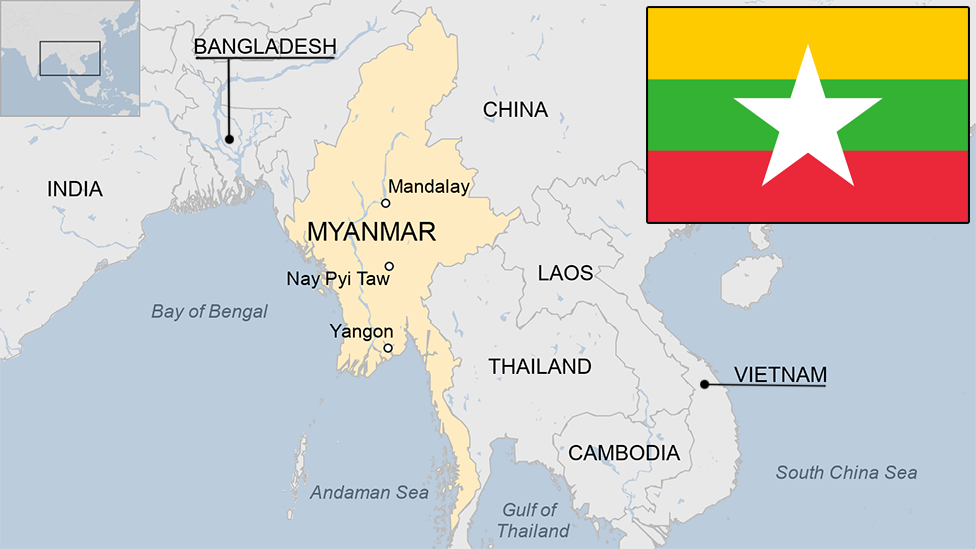
- Published5 November 2014
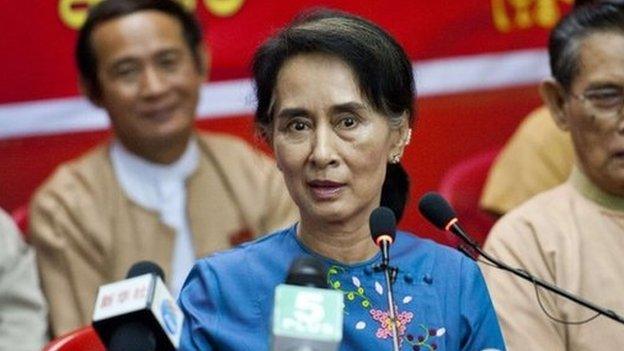
- Published6 December 2021
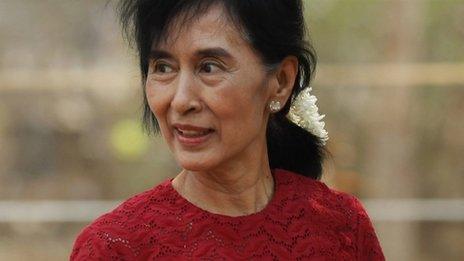
- Published10 November 2014
